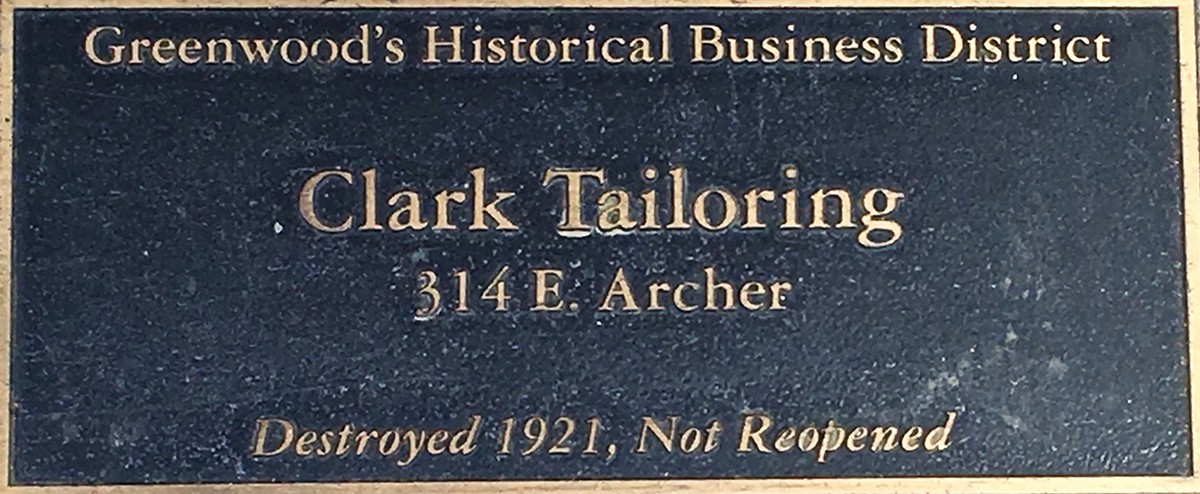University-Wide Initiative to Mark 100th Anniversary of the Tulsa Race Massacre

In 1921, Tulsa’s Greenwood District – also known as “Black Wall Street” – was one of the most affluent black communities in the United States. Yet during the evening of May 31 and the early-morning hours of June 1, 1921, Tulsa exploded. Enraged by rumors that a black youth had raped a white girl, a mob of several thousand white Tulsans orchestrated a violent attack on the Greenwood District.
All told, in approximately 12 hours of white mob violence, the 35 square blocks that constituted the district – more than a dozen churches, five hotels, 31 restaurants, four drugstores, eight doctors’ offices, two dozen grocery stores, a public library and more than 1,000 homes – lay in ruin. It is estimated that as many as 300 people, mostly black, lost their lives in the attack on the Greenwood District. This event – one of the deadliest acts of antiblack violence in U.S. history – is remembered as the Tulsa Race Massacre.
To commemorate the 100-year anniversary of the massacre, plans for a yearlong educational initiative across the University of Oklahoma’s three campuses are underway.
The project is being coordinated by professors Kalenda Eaton and Karlos Hill of the Clara Luper Department of African and African American Studies, along with Daniel Simon, assistant director and editor-in-chief of World Literature Today. Together, they are leading the OU Tulsa Race Massacre Centennial Coordinating Committee, which will serve as the project’s central point of contact.
“We invite faculty and staff from the Norman, OU-Tulsa and OUHSC campuses who are teaching relevant courses, or who are working on projects directly or indirectly related to the centennial throughout the 2020-2021 academic year, to join the initiative by contacting the committee at TRMcentennial@ou.edu,” said Hill.
Projects that involve teaching, research, creative activity and/or community engagement are especially welcome, including student projects.
“Our aim is to provide a critical space for the OU community to remember and reflect on the upcoming centennial,” said Eaton. “We also hope to engage the ongoing campus-wide conversation about diversity, equity and inclusion.”
Three commemoration projects have already been planned for the Norman campus next spring:
Reflecting on the Past, Facing the Future: The Tulsa Race Massacre Centennial Symposium
The university’s primary commemoration event will be “Reflecting on the Past, Facing the Future: The Tulsa Race Massacre Centennial Symposium.” The symposium will be held April 8-9, 2021, on the Norman campus and will include a keynote presentation, plenary talks and panels.
Redreaming Dreamland
World Literature Today will devote its spring 2021 issue, “Redreaming Dreamland,” to the centennial. The issue will reflect on 1921 and African American multicultural vitality in the 21st century, anchored in Oklahoma yet rippling out on a global scale. Contributors will include internationally renowned writers as well as authors from Oklahoma.
2021 Presidential Dream Course
Hill, along with professors Rilla Askew (English), Meta Carstarphen (Journalism) and John Stewart (Digital Learning), will offer a spring 2021 Presidential Dream Course focusing on the literary, media and historical responses to the massacre. The course will include a series of visiting speakers, who will provide free public lectures.
Additional commemoration projects will include a presentation by Oklahoma Archeological Survey researchers on their ongoing work on mass graves in Tulsa, more than half a dozen courses and other initiatives involving individual faculty members. In an exhibit scheduled to open late this fall, the Bizzell Memorial Library will present photos of the massacre, along with oral histories of the survivors.
The OU commemorations of the Tulsa Race Massacre are being supported, in part, by a Major Grant from Oklahoma Humanities and a Faculty Investment Program Grant from the OU Research Council and the Vice President for Research and Partnerships.
To learn more or to participate, email TRMcentennial@ou.edu.
Article Published: Wednesday, May 6, 2020